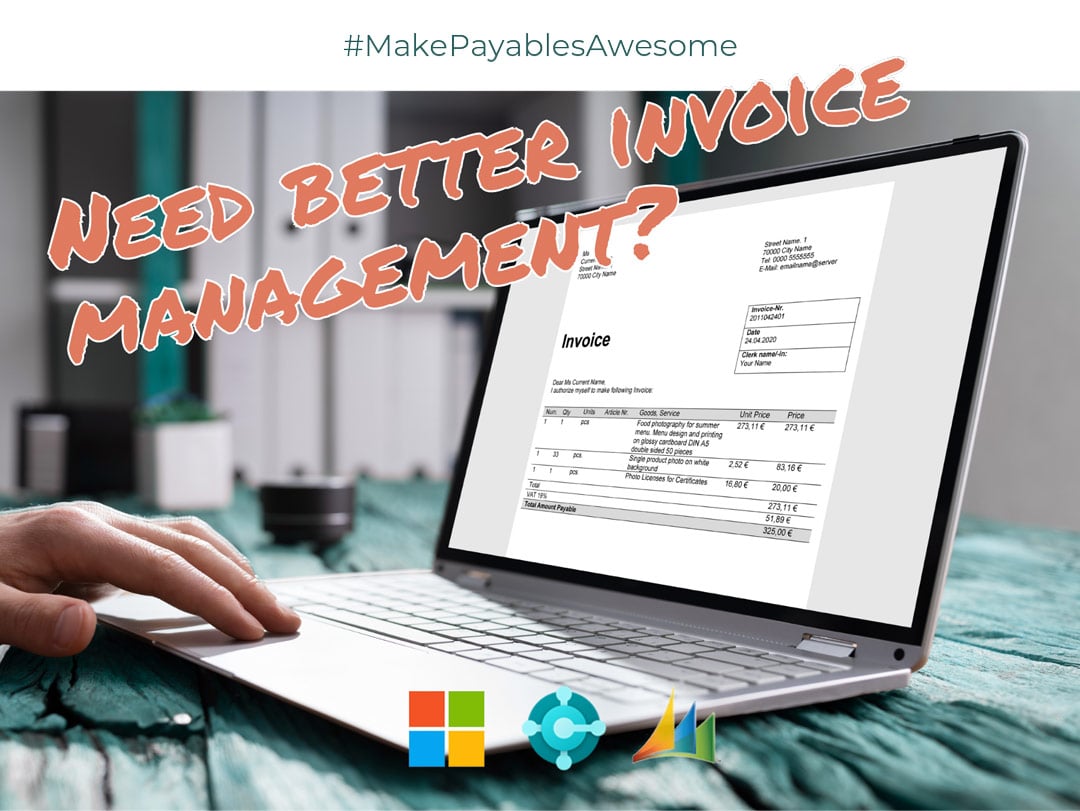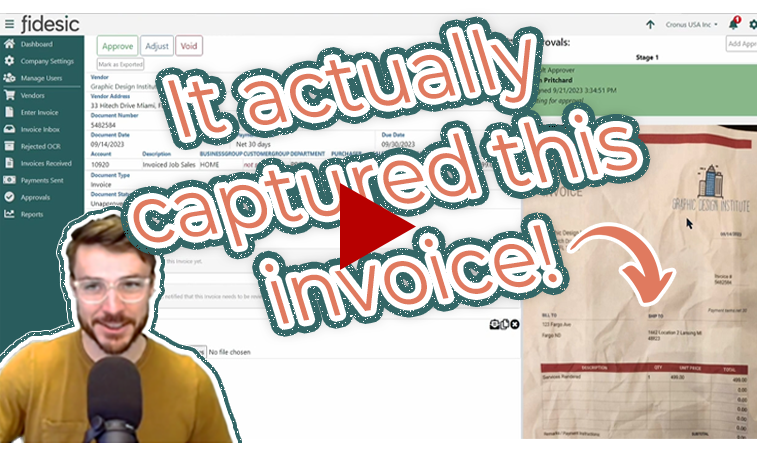Invoice Management Systems: Finding a Vendor Invoice Management Solution
Invoice systems have become essential tools for modern businesses seeking to streamline accounts payable operations. With the right vendor invoice management solution, organizations can reduce processing costs, improve accuracy, and enhance vendor relationships while maintaining better cash flow control.
What Are Invoice Management Systems?
Invoice management platforms are comprehensive software solutions designed to digitize, automate, and optimize the entire invoice processing workflow. Sometimes called Accounts Payable Automation, these invoice systems eliminate manual paper-based processes by providing centralized platforms for receiving, approving, and paying vendor invoices electronically.
Key Benefits of Invoice Management Platforms
Cost Reduction and Efficiency
Modern invoice systems significantly reduce processing costs by automating manual tasks. Organizations typically see 60-80% reduction in invoice processing time when implementing a robust vendor invoice management solution. The streamlined workflows eliminate redundant data entry and reduce the need for manual invoice routing.
Enhanced Accuracy and Compliance
Invoice management platforms incorporate automated data capture and validation features that minimize human error. These systems provide built-in compliance checks, ensuring invoices meet company policies and regulatory requirements before approval.
Improved Vendor Relationships
Online invoice management systems enable faster payment processing and provide vendors with real-time visibility into invoice status. This transparency strengthens vendor relationships and may unlock early payment discounts.
Better Financial Control
Comprehensive invoice systems offer detailed reporting and analytics, providing finance teams with insights into spending patterns, vendor performance, and cash flow forecasting capabilities.
Essential Features to Consider When You Compare Invoice Software
Automated Data Capture
Top invoice programs for business include optical character recognition (OCR) technology that automatically extracts key data from invoices, regardless of format. This feature eliminates manual data entry and reduces processing time.
Workflow Automation
Do you need location based approval routing? Effective invoice manager online solutions provide customizable approval workflows that route invoices to appropriate stakeholders based on predefined rules such as amount thresholds, cost centers, or vendor categories.
Integration Capabilities
The best invoice platform options seamlessly integrate with existing accounting systems, ERP platforms, and banking networks. This connectivity ensures data consistency across all financial systems.
Mobile Accessibility
Modern invoice systems offer mobile applications that enable approvers to review and process invoices from anywhere, preventing delays caused by unavailable approvers.
Audit Trail and Compliance
Comprehensive vendor invoice management solutions maintain detailed audit trails that track all invoice activities, modifications, and approvals, supporting regulatory compliance and internal auditing requirements.
How to Choose the Right Invoice Management Platform
Assess Current Process Challenges
Before evaluating invoice systems, document existing pain points such as processing delays, approval bottlenecks, or vendor payment issues. This assessment helps identify which features will deliver the most significant impact.
Evaluate Volume Requirements
Consider monthly invoice volumes when comparing invoice software options. High-volume organizations may require more robust processing capabilities and advanced automation features.
Integration Requirements
Ensure the selected invoice manager online solution integrates with existing accounting software, banking systems, and other business applications. Seamless integration prevents data silos and reduces implementation complexity.
User Adoption Considerations
Choose invoice programs for business that offer intuitive interfaces and comprehensive training resources. User adoption directly impacts implementation success and long-term value realization.
Scalability and Growth Planning
Select invoice management platforms that can accommodate future growth in transaction volumes and organizational complexity without requiring system replacements.
Implementation Best Practices for Invoice Systems
Stakeholder Engagement
Successful implementations involve key stakeholders from accounts payable, IT, and vendor management teams from the project inception. Their input ensures the selected vendor invoice management solution meets all operational requirements.
Pilot Program Approach
Start with a pilot program using a subset of vendors and invoices before full deployment. This approach allows for process refinement and user training while minimizing disruption to ongoing operations.
Vendor Communication
Inform vendors about the transition to online invoice management systems and provide clear guidelines for electronic invoice submission. Many invoice platforms support multiple submission methods to accommodate different vendor capabilities.
Performance Metrics
Establish baseline metrics before implementation and track improvements in processing time, accuracy rates, and cost per invoice. These measurements demonstrate ROI and identify areas for further optimization.
ROI Considerations When You Compare Invoice Software
Direct Cost Savings
Calculate potential savings from reduced manual processing time, eliminated paper and storage costs, and improved early payment discount capture. Most organizations see positive ROI within 12-18 months of implementing comprehensive invoice systems.
Indirect Benefits
Factor in benefits such as improved vendor relationships, enhanced compliance, and better cash flow management when evaluating different invoice management platforms.
Implementation Costs
Consider total cost of ownership including software licensing, implementation services, training, and ongoing support when comparing invoice programs for business.
Conclusion
Selecting the right vendor invoice management solution requires careful evaluation of organizational needs, feature requirements, and implementation capabilities. The best invoice systems combine powerful automation capabilities with user-friendly interfaces and robust integration options.
When you compare invoice software options, focus on solutions that align with current processes while providing scalability for future growth. The right invoice manager online platform will transform accounts payable operations from a cost center into a strategic advantage that supports overall business objectives.
Modern invoice management platforms represent essential infrastructure for businesses seeking to optimize financial operations, improve vendor relationships, and maintain competitive advantages in today's digital business environment.






